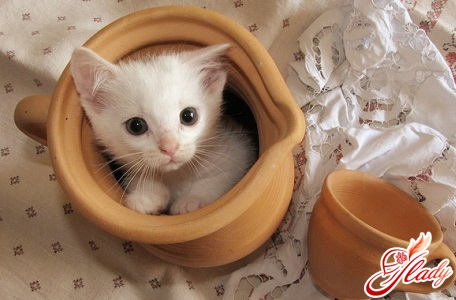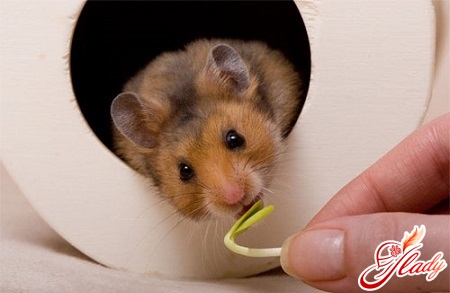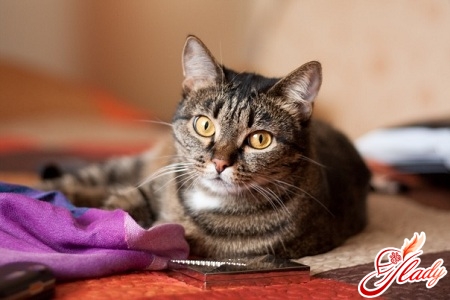 "Your cat would buy Whiskas," he claimsa well-known advertising slogan. And strangely enough, this time the advertising does not deceive us. Regardless of our prohibitions or pleas, any cat would do exactly this (if, of course, this food is to its taste). Because a cat does only what it considers necessary and what it likes. And this is the whole essence of a cat's nature. And therefore, raising a cat sometimes costs its owners wasted nerves, scratched hands, and tears of resentment. However, there is one little secret, or rather a psychological (zoopsychological) technique, which makes this problem easily solvable.
"Your cat would buy Whiskas," he claimsa well-known advertising slogan. And strangely enough, this time the advertising does not deceive us. Regardless of our prohibitions or pleas, any cat would do exactly this (if, of course, this food is to its taste). Because a cat does only what it considers necessary and what it likes. And this is the whole essence of a cat's nature. And therefore, raising a cat sometimes costs its owners wasted nerves, scratched hands, and tears of resentment. However, there is one little secret, or rather a psychological (zoopsychological) technique, which makes this problem easily solvable.
The secret of successful education
Yes, yes, precisely with the comprehension of this simple truth.and that's where it all begins. Actually, the training of cats comes down to only correcting the cat's behavior. And it can be corrected correctly only if you manage to convince the cat that it wants it itself. That is, that the changes in the cat's behavior are caused exclusively by its own desire. This method is considered the most humane and most effective method of training. And one more additional condition for successful training for you and the cat - the earlier you start, the greater the effect can be achieved. Agree that it is still easier to train than to re-educate. But even if you are faced with the need for re-education, success is quite achievable if you follow some rules. Namely: cunning, patience and persistence on your part, trust and understanding on the part of the cat. Let's start comprehending the secret of successful training of cats from the beginning, that is, from the moment a kitten appears in your house.
Education at an early age
Good behavior of an adult cat isthe result of proper kitten upbringing. Because the animal will remain the same as it was in its early age as an adult. This is an axiom. Therefore, no matter what tender feelings you have for a small kitten, do not allow it to do what you would not allow an adult animal to do. For example, the clumsy attempts of a baby to climb onto your shoulder, clinging to your legs and clothes, most often cause only affection. But imagine a heavier cat in this role, or even worse - an adult seasoned cat? Unpleasant is an understatement. Most likely, you will also feel pain! And who is to blame? You trained it yourself. Therefore, stop all attempts by the kitten to treat you (and other family members) as gymnastics equipment. Don't let him develop habits that would be undesirable (from your point of view) behavior in an adult cat: scratching furniture and walls, digging up soil in flower pots, climbing on tables, begging for tasty morsels, and so on and so forth. While your pet is still small, a sharp change in the tone of your voice will be enough for him to stop being naughty. Therefore, allow yourself strict and sharp notes in prohibitive phrases: "No!", "You can't!", "Stop it!" In the future, the animal will react correctly not only to the tone, but also to the words themselves. Just do not forget that at other times you need to talk to him affectionately and calmly, and do not forget to reward the baby for correctly understanding your prohibitions. By the way, prohibitions should not apply only to the kitten. If you have a child, then explain to him that an animal is not a toy. You need to handle it carefully: do not squeeze, do not torment it with hugs and kisses, do not beat or throw it. Otherwise, the kitten will be forced to defend itself from such violence and will use its claws and teeth. And such behavior will easily become habitual for it, and the result is a biting and scratching nervous animal instead of an affectionate and gentle cat. Show firmness and persistence in training the kitten to use the litter box and scratching post: the baby will quickly understand what you want from it. Kittens, unlike adult cats, are less persistent and more "compliant". And their independent character is still in its infancy. So take advantage of the moment - raise an obedient cat while it is still small.
How can you bring up a kitten?
Never! Never hit him.Firstly, it is simply unfair – he is smaller and weaker than you. Secondly, it is not the most effective method of education. Thirdly, the animal may respond to you with aggression (and this is quite normal for cats). And fourthly, the cat will not understand why you hit it anyway. And even if it does understand, it will simply harbor a grudge and will definitely do mischief in your absence. If you are a supporter of physical methods of influence, then use the advice of zoopsychologists: imitate the behavior of a mother cat. How would she calm down an excessively frolicsome child? In this case, the cat would press hard but gently on his nose with her paw. Try doing the same: touch the kitten's nose with your finger and let him know that he is behaving incorrectly. And you also cannot let the cat understand that what is preventing her from doing her "favorite" thing comes from you. Yes, in your presence, she may not do it anymore. But she will definitely take advantage of the moment when you are not around and try again. If the attempt is successful, it is all over. Nothing will make her give up the intentional, she will still do it again and again, but only in your absence. Therefore, other, already proven and effective methods are used to train cats.
Methods of education
The tone of your voice. Этот метод следует использовать лишь для воспитания котенка. Со взрослыми животными такой фокус, как правило, не проходит. Так что крики, просьбы, строгие нотации вам не помогут. Бить его тоже бесполезно. Ну и как воспитывать кошку или кота в таком случае? Для воспитания взрослого животного попробуйте применить метод превращения приятного в неприятное. Создайте для кошки такие условия, чтобы проказы, которые она совершает с видимым удовольствием стали ей самой неприятны. А параллельно с этим поощряйте ее за то, что она изменяет своим привычкам. Так, например, если ваша любимица повадилась драть мебель, урча от удовольствия и наслаждаясь звуками рвущейся ткани, попробуйте пойти на следующую хитрость. Для начала приобретите когтеточку (лучше всего – специальную стойку) и подрежьте проказнице когти. Стойку натрите пахучей кошачьей мятой, а «место для царапанья» на мебели заклейте липкой лентой (липкой с обеих сторон). Вероятнее всего, из двух имеющихся вариантов кошка выберет стойку: та и пахнет приятно, и к лапам ничего не липнет. А если попытки вернуться к мебели кошка не прекращает, то при первом же коварном поползновении с ее стороны издавайте громкий звук, пугающий кошку. Можно, например, с силой хлопнуть в ладоши или по стене, стукнуть половником по металлической крышке от кастрюли или резко включить фен (миксер, пылесос). Главное, чтобы кошка вас при этом не видела! Тогда она честно решит, что страшные звуки издает мебель, к которой она приближается. А когтеточка-то молчит! Хорош для воспитания кошек и метод внезапности, когда «вдруг» и совершенно неожиданно для них происходит что-то неприятное или пугающее. Так, например, можно отучить кота запрыгивать на стол. Если водрузить на него пирамиду (обязательно неустойчивую!) из пустых жестяных банок, то при прыжке кот ее свалит, и банки с грохотом посыпятся вниз. Коту это однозначно не понравится! Если ваша четвероногая проказница обожает «шарить» в мусорном ведре, открывая крышку и переворачивая его, то предоставьте ей такую возможность. Только поставьте в ведро банку с водой (или в само ведро налейте воды). Открыв и перевернув ведро, хулиганка получит щедрую порцию неожиданного водопада. Наверняка это отобьет у нее желание повторить попытку. А если такое происходит не один раз, да еще, когда никого нет дома – значит «что-то в этой жизни не так» и ведро лучше оставить в покое. Но кошка сама должна прийти к такому выводу. Она ведь вообще «сама по себе» и никто ей не указ. А для правильного воспитания кошки метод «я сама» – самый главный и самый действенный: «Я сама не хочу больше делать то, что делала раньше». Если кошка так считает, значит, из вас получился прекрасный воспитатель. Ваша задача выполнена, если вы смогли убедить кошку в том, что она сама так решила. А помочь вам в этом поможет еще одна прописная истина. Суть ее в том, что кошка никогда ничего не делает вам «назло» – она просто выше этого. Она просто видит мир по-другому и просто делает то, что ей нравится и поступает так, как ей хочется. Такой уж у нее характер. И успешное воспитание кошки вовсе не значит, что характер этот нужно сломать. Да и невозможно это в принципе. Кошку можно напугать, озлобить, заставить вас любить или ненавидеть, но сломать – никогда! И нам есть чему поучиться у этих гордых животных. Советуем почитать:









